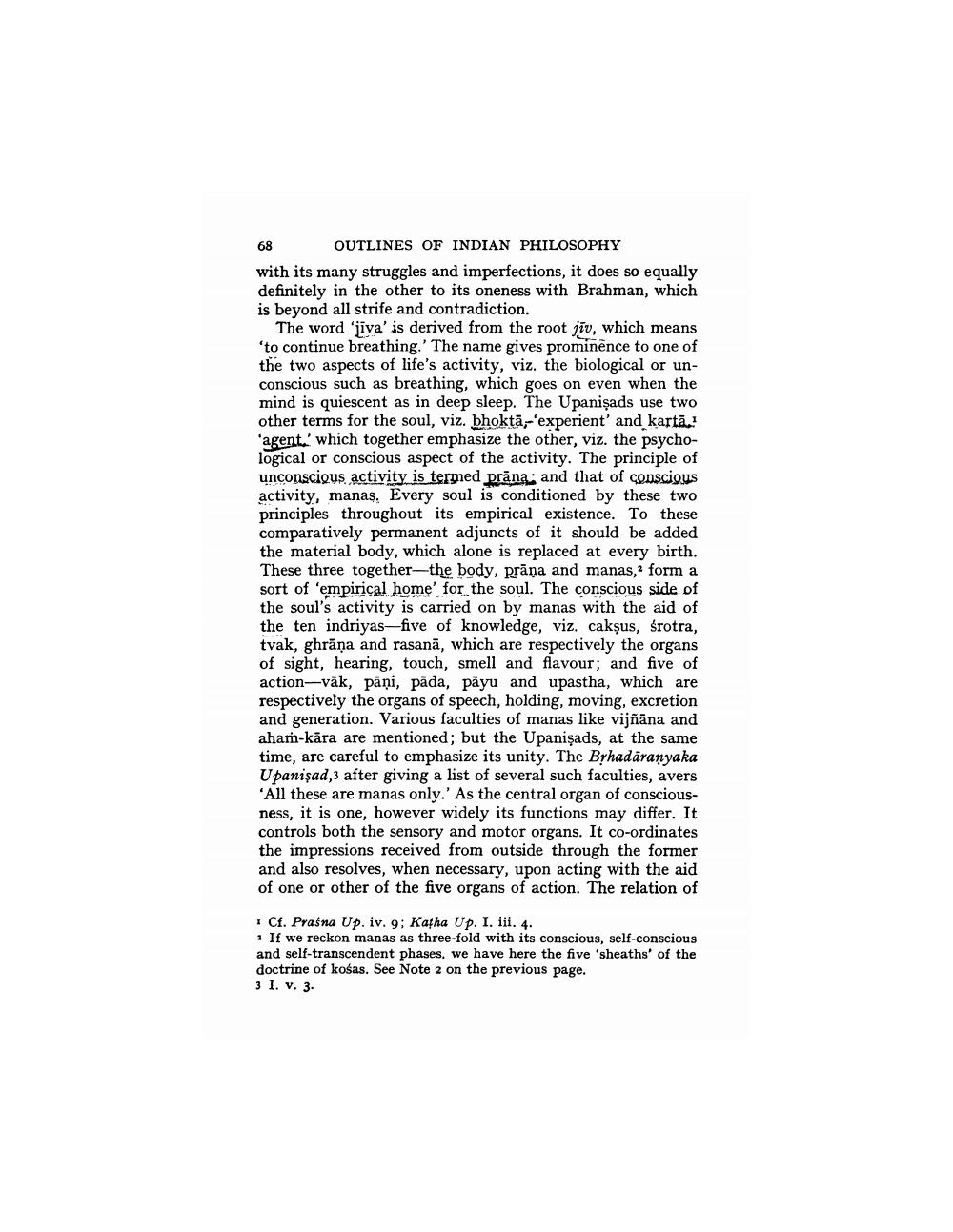________________
68 OUTLINES OF INDIAN PHILOSOPHY with its many struggles and imperfections, it does so equally definitely in the other to its oneness with Brahman, which is beyond all strife and contradiction.
The word 'jiva' is derived from the root jīv, which means 'to continue breathing.' The name gives prominence to one of the two aspects of life's activity, viz. the biological or unconscious such as breathing, which goes on even when the mind is quiescent as in deep sleep. The Upanişads use two other terms for the soul, viz. bhoktā,-'experient' and kartā. 'agent which together emphasize the other, viz. the psychological or conscious aspect of the activity. The principle of unconscious activity is termed prāna, and that of conscious activity, manas. Every soul is conditioned by these two principles throughout its empirical existence. To these comparatively permanent adjuncts of it should be added the material body, which alone is replaced at every birth. These three together—the body, prāna and manas,2 form a sort of 'empirical home for the soul. The conscious side of the soul's activity is carried on by manas with the aid of the ten indriyas-five of knowledge, viz. cakşus, srotra, tvak, ghrāna and rasanā, which are respectively the organs of sight, hearing, touch, smell and flavour; and five of action-vāk, pāņi, pāda, pāyu and upastha, which are respectively the organs of speech, holding, moving, excretion and generation. Various faculties of manas like vijñāna and aham-kāra are mentioned; but the Upanişads, at the same time, are careful to emphasize its unity. The Byhadaranyaka Upanişad,3 after giving a list of several such faculties, avers
All these are manas only.' As the central organ of consciousness, it is one, however widely its functions may differ. It controls both the sensory and motor organs. It co-ordinates the impressions received from outside through the former and also resolves, when necessary, upon acting with the aid of one or other of the five organs of action. The relation of
* Cf. Praśna Up. iv. 9; Katha Up. I. iii. 4. · If we reckon manas as three-fold with its conscious, self-conscious and self-transcendent phases, we have here the five 'sheaths' of the doctrine of kośas. See Note 2 on the previous page. 3 I. v. 3.




